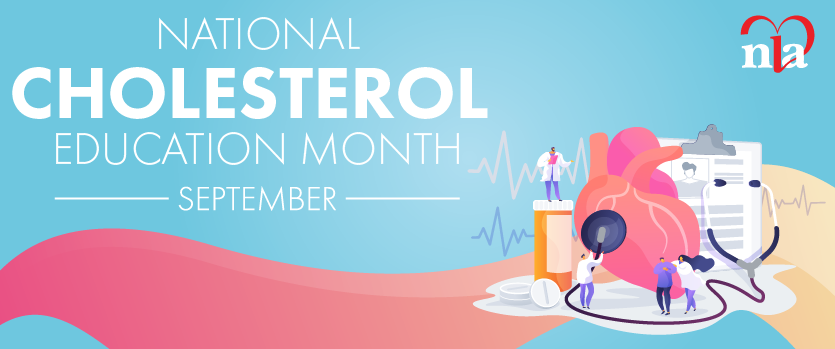The report by Brasky, et al., in the J Natl Cancer Institute titled, "Plasma Phospholipid Fatty Acids and Prostate Cancer Risk in the SELECT Trial"1 attracted widespread media attention. It reported that higher baseline levels of omega-3 fatty acids in the plasma phospholipid fraction were associated with a significantly increased risk for prostate cancer over 9 years.
The authors wrote, "The consistency of these findings suggests that these fatty acids are involved in prostate tumorigenesis and recommendations to increase longchain omega-3 fatty acid intake, in particular through supplementation, should consider its potential risks.” In a news release, they said, "We’ve shown once again that use of nutritional supplements may be harmful."
The problem here is that the authors confuse association with causality. The study design was very common: measure a biomarker in a disease-free group at baseline and then correlate it to incident disease. The problems were their unfounded extrapolations and the irresponsible promotion of their findings. The media failed to call them on this - Why should they? The 24/7 news beast must be fed with controversy! - and the endless echoes of "fish oil causes prostate cancer" screaming across the headlines elicited tremendous confusion among patients and may be reversing years of progress in raising the public’s awareness of the benefits - and safety - of these nutrients.
 What did Brasky, et al., actually find? Were omega-3 levels "high" in those who developed cancer? The answer is no. Eicosapentaenoic acid and docosahexaenoic acid (EPA+DHA) levels were 3.52% in the no-cancer control group, 3.67% in the lowgrade cancer group and 3.74% in the highgrade group. Translated into the Omega-3 Index (red blood cell [RBC] EPA+DHA), these range from 4.45% to 4.55% – barely above deficient levels (Figure 1).
What did Brasky, et al., actually find? Were omega-3 levels "high" in those who developed cancer? The answer is no. Eicosapentaenoic acid and docosahexaenoic acid (EPA+DHA) levels were 3.52% in the no-cancer control group, 3.67% in the lowgrade cancer group and 3.74% in the highgrade group. Translated into the Omega-3 Index (red blood cell [RBC] EPA+DHA), these range from 4.45% to 4.55% – barely above deficient levels (Figure 1).
Were those taking fish oil supplements (FOS) at increased risk? No. Brasky, et al., did not give anyone FOS. They do not even know who was or was not taking them. Nor did they collect data on fish intake. In Framingham study, people who were taking FOS had an average Omega-3 Index of 7.5%.2 This suggests fish oil intake was low in the SELECT trial.
It is possible that some component of whatever fish these patients were consuming was carcinogenic. The serum omega-3 levels could be merely a marker of fish (i.e., carcinogen) intake. The authors failed to consider the possibility of reverse causation. A much larger proportion of men who ultimately developed cancer (30%-40%) had prostate-specific antigen (PSA) levels >3 at baseline (compared to 7% of the controls). It is possible that sub-clinical prostate cancer was already developing in the higher-risk men. He, et al.,3 and Azordegan, et al.,4 provide evidence that, in pre-cancerous tissues, early changes in fatty acid metabolism might increase at least tissue levels of long-chain n-3 fatty acids. It also is conceivable that there were higher estrogen levels in these men.5 If so this could have up-regulated delta-5, 6-desaturases producing long-chain from short-chain omega-3 fatty acids.6 Although untested, these biological hypotheses could, in theory, explain the slightly increased omega-3 levels in those at higher risk - without blaming fish intake or FOS use.
It is important to put these findings into perspective. Consider the risk of dying from prostate cancer vs. ischemic heart disease (IHD). Based on the National Vital Statistics Report for deaths in the U.S. in males in 2010, there were about 28,500 deaths from prostate cancer and 207,500 deaths from IHD – this translates into a 7.3x higher rate of death for heart disease. A study similar to the one by Brasky, et al., but receiving far less news coverage, used exactly the same methodology (a biomarkerbased prospective cohort) and found that higher plasma phospholipid EPA+DHA levels were associated with – we cannot say caused – lower mortality rates in older Americans.7 One might ask: Why did this paper not receive the same attention as Brasky’s report?
Brasky, et al., failed to present the complete story. The same team reported in 2010 that the use of FOS was not associated with any increased risk for prostate cancer.8 A 2010 meta-analysis of fish consumption and prostate cancer reported a reduction in late-stage or fatal cancer among cohort studies, but no overall relationship between prostate cancer and fish intake.9 Terry, et al., in 200110 reported that higher fish intake was associated with a lower risk for prostate cancer incidence and death, and Leitzmann, et al., in 200411 reported similar findings. Higher intakes of canned, preserved fish were reported to be associated with reduced risk for prostate cancer.12 Epstein, et al., found that a higher omega-3 fatty acid intake predicted better survival for men who already had prostate cancer,13 and increased fish intake was associated with a 63% reduction in risk for aggressive prostate cancer in a case-control study by Fradet, et al.14 A 2012 review of omega-3 and prostate cancer concluded, "the epidemiological data is inconsistent [but] suggest an inverse association of LC n-3 PUFA [and prostate cancer]."15
There is little evidence showing harm and substantial evidence for benefit with fish oil.
 The Japanese typically eat about 8x more omega-3 fatty acids than Americans do16 and their blood levels are twice as high,17 and yet rates of prostate cancer in Japan are about 10% of those in the U.S.18 Clearly this is not consistent with the conclusions of Brasky, et al. However one has to be careful about an ecological fallacy meaning population comparision data may not be the same as individual comparison data.
The Japanese typically eat about 8x more omega-3 fatty acids than Americans do16 and their blood levels are twice as high,17 and yet rates of prostate cancer in Japan are about 10% of those in the U.S.18 Clearly this is not consistent with the conclusions of Brasky, et al. However one has to be careful about an ecological fallacy meaning population comparision data may not be the same as individual comparison data.
Evidence from randomized clinical trials with fish oils provides the highest quality of evidence of the effects of omega-3 supplementation on the incidence of cancer (which is tracked among potential adverse events). Table 1 shows the findings for eight major clinical trials, including more than 78,000 patients. In none of these studies was cancer incidence significantly increased by omega-3 fatty acid supplementation. In summary, the work of Brasky, et al., is not necessarily bad research. It is a poor interpretation of the findings. The antidote to Brasky, et al., is more good science, rationally interpreted. Without media spin.
Disclosure statement: Dr. Harris is employed by Health Diagnostics Lab, Inc. He is owner of Omegaquant Analytics, LLC and has received consulting fees from Omthera Pharmaceuticals and Aker Biomarine Antarctica.
Article By:
Senior Research Scientist, Health Diagnostic Laboratory Inc.
Richmond, VA
Professor, Department of Internal Medicine, Sanford School of Medicine,
University of South Dakota
President, OmegaQuant Analytics, LLC
Sioux Falls, SD
Diplomate, Accreditation Council for Clinical Lipidology






.jpg)
.png)











